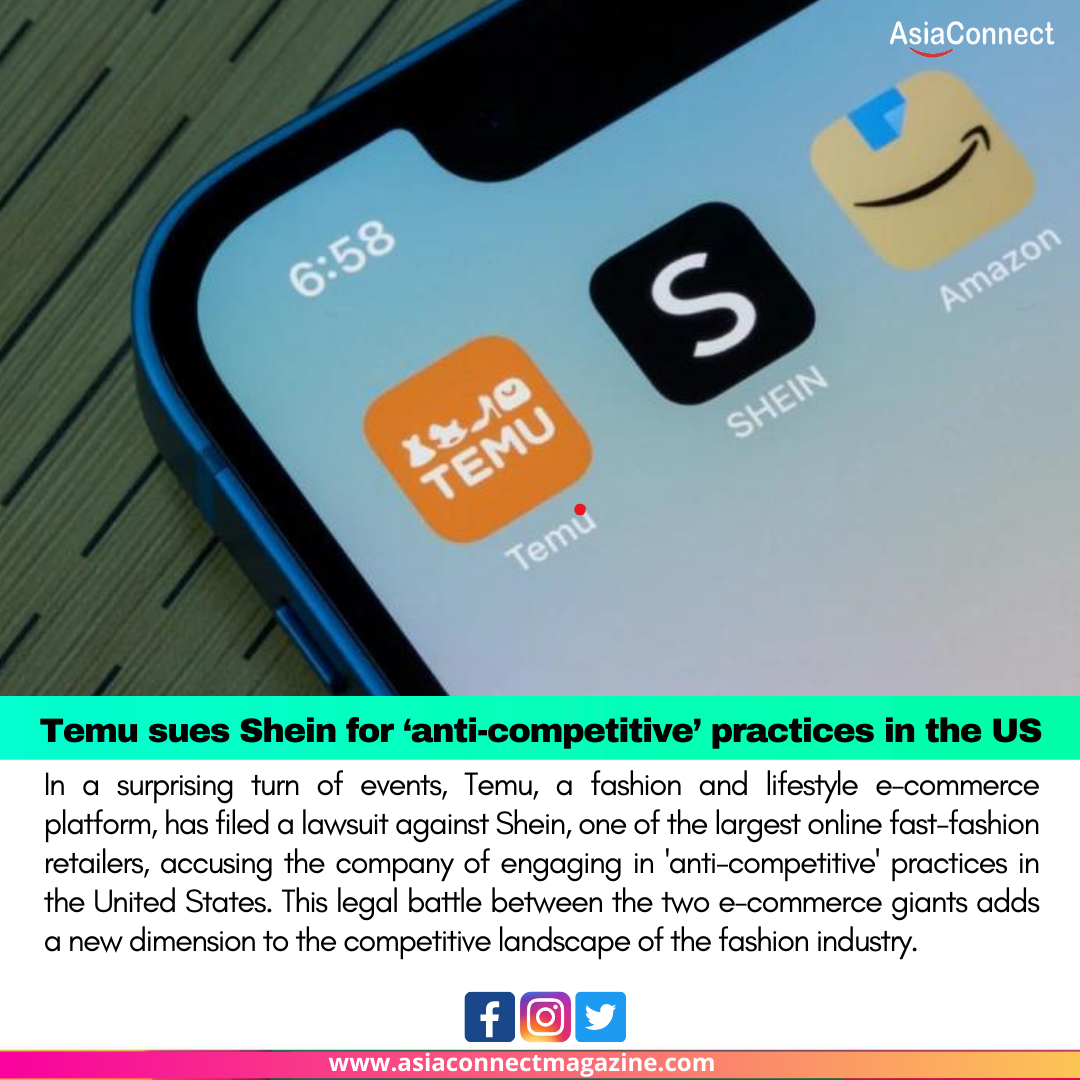In a surprising turn of events, Temu, a fashion and lifestyle e-commerce platform, has filed a lawsuit against Shein, one of the largest online fast-fashion retailers, accusing the company of engaging in ‘anti-competitive’ practices in the United States. This legal battle between the two e-commerce giants adds a new dimension to the competitive landscape of the fashion industry.
The lawsuit, filed in a U.S. court, alleges that Shein has engaged in practices that stifle competition and harm the interests of smaller competitors like Temu. Temu claims that Shein’s aggressive pricing strategies, exclusive partnerships, and alleged manipulation of search engine results create an unfair playing field, making it difficult for smaller players to thrive in the market.
One of the key allegations in Temu’s lawsuit revolves around Shein’s pricing practices. Temu argues that Shein consistently sells its products at prices that are artificially low, potentially below production costs, with the intention of driving competitors out of the market. Such predatory pricing, if proven, could be deemed anti-competitive and in violation of fair trade practices.
The lawsuit also raises concerns about Shein’s exclusive partnerships with fashion influencers and celebrities. Temu alleges that Shein’s exclusive agreements with high-profile individuals give the company an unfair advantage in marketing and promotion, limiting the visibility and market reach of other competitors. This practice, if substantiated, could be seen as an attempt to create a monopolistic hold on influencer endorsements within the fashion e-commerce space.
Additionally, Temu accuses Shein of manipulating search engine results to prioritize its products over those of competitors. The lawsuit suggests that Shein may have employed deceptive practices to influence search algorithms, potentially diverting traffic away from Temu and other competitors. Such tactics, if proven, could be a violation of fair competition principles and could attract regulatory scrutiny.
The legal action taken by Temu underscores the intensifying competition within the e-commerce sector, particularly in the fast-fashion segment. As online shopping continues to grow in popularity, companies are becoming more aggressive in their strategies to capture market share, leading to an increase in legal disputes over alleged anti-competitive behavior.
Shein, in response to the lawsuit, has denied any wrongdoing and emphasized its commitment to fair business practices. The company asserts that its success is a result of its customer-centric approach, efficient supply chain management, and a keen understanding of market trends. Shein may argue that its competitive advantage is a result of its ability to adapt to consumer demands and offer attractive pricing, rather than engaging in anti-competitive practices.
This legal battle between Temu and Shein is poised to be closely watched by industry observers, legal experts, and other e-commerce players. The outcome of the lawsuit could set precedents for how the industry navigates the fine line between healthy competition and anti-competitive behavior.
In conclusion, Temu’s decision to sue Shein for alleged ‘anti-competitive’ practices in the U.S. reflects the growing complexity of competition in the e-commerce sector, especially in the fast-fashion space. As the legal proceedings unfold, the case will shed light on the regulatory boundaries within the industry and could impact how companies approach pricing, partnerships, and marketing strategies to maintain fair competition and consumer choice.





